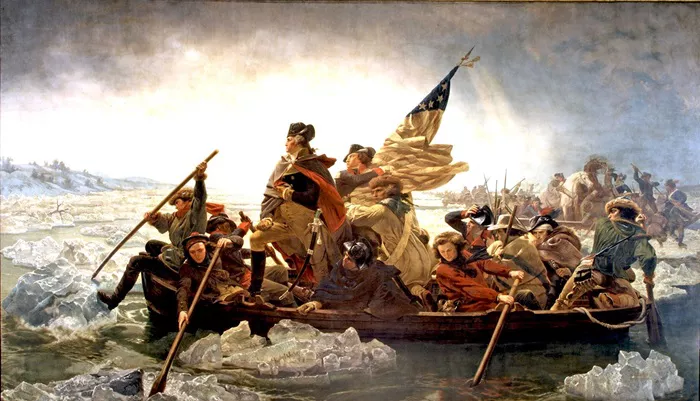December 25 is widely recognized as Christmas Day, a holiday celebrated by billions around the world to commemorate the birth of Jesus Christ. However, this date has also witnessed numerous significant events throughout American history. This article delves into various historical occurrences on December 25, highlighting their importance and context.
What Happened on December 25 in American History?
The Crossing of the Delaware (1776)
One of the most pivotal events in American history occurred on December 25, 1776, when General George Washington and the Continental Army crossed the icy Delaware River. This bold maneuver was part of a surprise attack against Hessian forces stationed in Trenton, New Jersey.
The crossing took place during a harsh winter, with morale among Washington’s troops at a low point due to defeats earlier in the year.
Washington’s plan was to launch a surprise attack on the Hessians, who were celebrating Christmas.
The successful assault resulted in a crucial victory for the Continental Army, revitalizing the revolutionary cause and encouraging enlistment.
This event is often depicted in art and literature as a symbol of American perseverance and strategic ingenuity.
The Eggnog Riot at West Point (1826)
On December 25, 1826, an unusual incident known as the “Eggnog Riot” unfolded at the United States Military Academy at West Point. The riot began when cadets celebrated Christmas with an illicit supply of eggnog spiked with alcohol.
The festivities escalated into chaos, with cadets engaging in brawls and defying authority.
Approximately 70 cadets were implicated in the riot, leading to court-martials for 20 of them.
Notably, Jefferson Davis, who would later become President of the Confederate States, was among those involved.
The Eggnog Riot highlighted issues of discipline within military ranks and sparked discussions about alcohol consumption among cadets.
The Great Jamaican Slave Revolt (1831)
On December 25, 1831, one-fifth of Jamaica’s enslaved population mobilized in a revolt against their oppressors. This uprising was part of a broader struggle for freedom that characterized many slave societies in the Americas.Key Aspects:
The revolt lasted for eleven days and involved up to 60,000 enslaved individuals.
It was ultimately unsuccessful but drew attention to the brutal conditions faced by enslaved people.
The rebellion had far-reaching consequences for slavery in Jamaica and contributed to growing abolitionist sentiments throughout the British Empire.
This revolt is remembered as a significant moment in the fight against slavery and has influenced historical narratives regarding resistance movements.
The First Abdominal Surgery (1809)
On this day in 1809, Dr. Ephraim McDowell performed what is considered the first successful abdominal surgery by removing an ovarian tumor from his patient Jane Todd Crawford without anesthesia.Surgical Milestone:
McDowell’s pioneering surgery took place at his home in Danville, Kentucky.
The tumor weighed an astonishing 22.5 pounds.
Remarkably, Crawford recovered fully and lived for another 32 years after the operation.
This event marked a significant advancement in surgical practices and showcased McDowell’s innovative techniques that laid groundwork for future abdominal surgeries.
World War I Christmas Truce (1914)
During World War I, on December 25, 1914, an unofficial truce occurred along the Western Front. Soldiers from both sides laid down their arms to celebrate Christmas together.Notable Features:
Soldiers exchanged gifts, sang carols, and even played football matches.
This truce highlighted a moment of humanity amidst the horrors of war.
It has since become emblematic of peace and goodwill during conflict.
The Christmas Truce serves as a poignant reminder of shared humanity during times of strife.
Mikhail Gorbachev Resigns (1991)
On December 25, 1991, Mikhail Gorbachev resigned as President of the Soviet Union. His resignation marked a significant turning point in world history as it effectively signaled the end of the Soviet Union.Implications:
Gorbachev’s policies of glasnost (openness) and perestroika (restructuring) aimed to reform the Soviet system but ultimately contributed to its collapse.
His resignation led to the dissolution of the USSR on December 26, 1991.
This event reshaped global politics and ended decades of Cold War tensions between East and West.
Gorbachev’s departure underscored profound changes within Eastern Europe and set the stage for new political dynamics globally.
Launch of James Webb Space Telescope (2021)
On December 25, 2021, NASA launched the James Webb Space Telescope from French Guiana. This telescope represents a monumental achievement in space exploration and astronomy.Significance:
Developed collaboratively by NASA, ESA (European Space Agency), and CSA (Canadian Space Agency), it is designed to observe distant galaxies and phenomena.
Webb is expected to provide insights into the universe’s formation and evolution.
Its launch marked a new era in astronomical research following decades of planning and development.
The James Webb Space Telescope symbolizes human curiosity and our quest for knowledge about the cosmos.
Conclusion
December 25 has been a day of both celebration and significant historical events throughout American history. From military victories to groundbreaking medical advancements and pivotal political changes, this date encompasses a rich tapestry of human experience. Each event not only shaped its immediate context but also left lasting legacies that continue to influence contemporary society. As we reflect on these moments, we recognize how history intertwines with our present lives on this notable day each year.
Related Topics:

